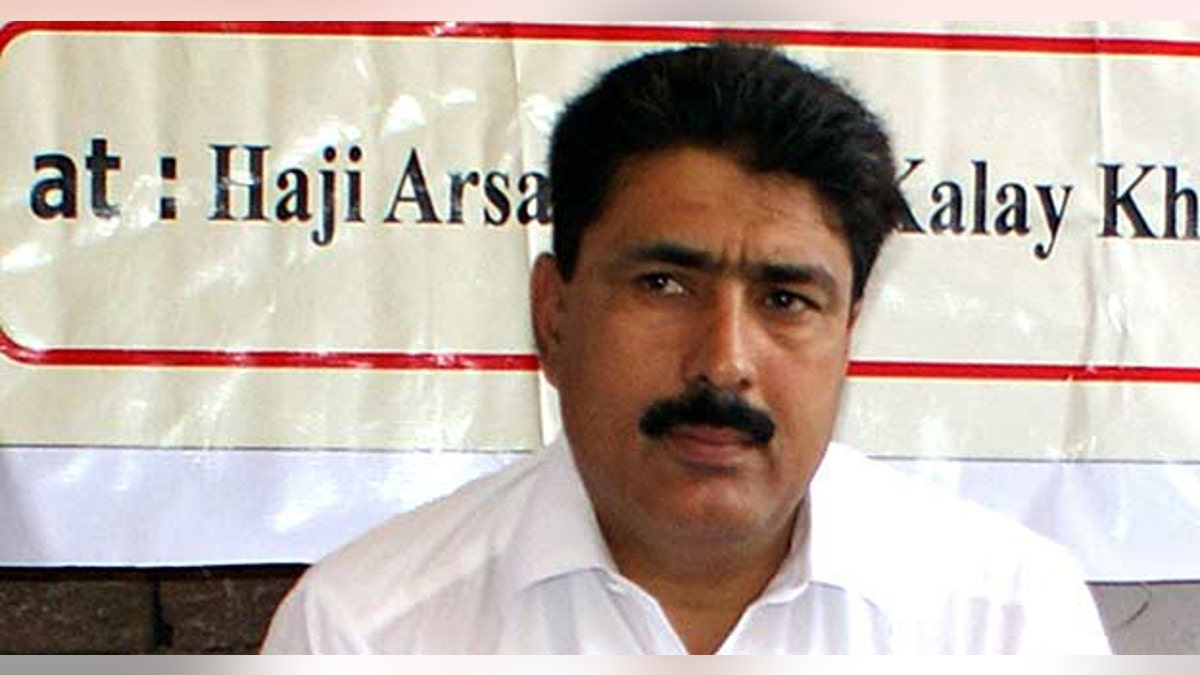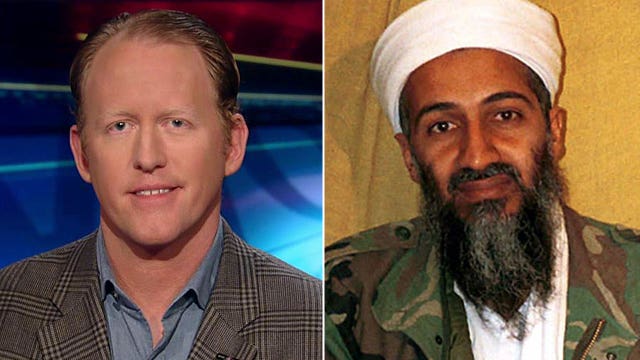SEAL who killed bin Laden on Afghanistan troop drawdown
President Obama announces halt to troop withdrawal
High-level talks to free the Pakistani doctor imprisoned there ever since his role in a ruse to uncover Usama bin Laden’s hideout have broken down, a key military and intelligence source told FoxNews.com, saying Shakil Afridi remains too unpopular in his homeland for officials to consider a swap.
Although senior officials at the Central Intelligence Agency gave back channel negotiators the informal green light to do “whatever it takes” to secure Afridi’s release, the agency’s Pakistani counterparts at the Inter-Services Intelligence (ISI) have rejected recent overtures.
“Basically, the ISI said it is still too politically sensitive,” the source told FoxNews.com. “If the issue quiets down and we stop asking, they may be able to do more.
“Sadly enough, the way to get Dr. Afridi out might be to leave him to rot in prison a bit longer, then let it happen quietly.”
“Dr. Afridi has been largely forgotten. The administration has him to thank for helping us kill bin Laden, a feat which Obama took credit for."
Some of the same negotiators who worked on deals to free several U.S. hostages held in Afghanistan and Pakistan have been involved in talks to free Afridi, but they have apparently hit a dead end, at least for the time being.
The physician worked with the CIA to verify the terror chief’s presence inside an Abbottabad compound, paving the way for the daring, 2011 raid in which Navy SEAL Team 6 took out the world’s most wanted terrorist.
Afridi was hailed as a hero by U.S. officials for posing as a vaccination manager in the operation, obtaining DNA samples of bin Laden relatives and establishing his presence in the compound. But officials, including then-CIA Director Leon Panetta, made Afridi’s role public before the doctor and his family could get out of Pakistan, and he was quickly arrested.

Pakistani surgeon Shakeel Afridi remains in a prison, despite US efforts to free him. (file) (AFP ImageForum)
In May 2012, Afridi was sentenced to 33 years behind bars, under murky charges. Pakistani officials initially reported he was convicted of treason. Then in 2013, his conviction was overturned and he was instead charged with the murder of a patient eight years earlier and his prison term reduced to 23 years.
Afridi filed an appeal seeking a new trial, but his lawyer, Qamar Nadeem Afridi, claimed in September that 16 sessions had passed without any proceedings because the local tribal district had failed to submit necessary documents.
A State Department spokesperson said top U.S. diplomats are closely following Afridi’s case and that these concerns have been clearly communicated “at the highest levels” to Pakistan, both in public and in private.

A Pakistan army helicopter heads back after flying over the compound where Al Qaeda leader Usama bin Laden was killed in 2011. (AP Photo/Anjum Naveed) (AP)
“We believe his treatment is both unjust and unwarranted,” the spokesperson said. “We regret that he was convicted and the severity of his sentence. Bringing Usama bin Laden to justice was clearly in Pakistan’s interests as well as ours.”
While the U.S. provides Pakistan with more than $800 million in foreign aid, the U.S needs the mostly Muslim nation’s cooperation in the war on terror. Pakistan has been developing alternative lines of economic and military support from China and Russia to counter anticipated loss of U.S support, according to Foreign Policy.
Afridi’s main champion in Washington may be Rep. Dana Rohrabacher, R-Calif., who has introduced bills calling for President Obama to declare him a naturalized citizen and award him with a Congressional Gold Medal. In February, Rohrabacher pressed Secretary of State John Kerry to support withholding $500 million in aid to Pakistan until Afridi is freed. Kerry declined, stating that “regular communication, direct and high level engagement” would have a better chance of success.
Much anger from the intelligence community has been directed at the administration in general and Panetta in particular for divulging key details of the operation in the afterglow of the successful raid. Some believe cutting off aid to Pakistan is a no-brainer.
“Dr. Afridi has been largely forgotten,” said retired U.S. Army Special Forces Col. James Williamson, co-founder of the non-profit organization Special Operations OPSEC Education Fund, which fights to stop politicians from leaking and capitalizing on national security operations and secrets. “The administration has him to thank for helping us kill bin Laden, a feat which Obama took credit for.
“There is a lot of leverage that could be employed diplomatically and most importantly, economically, Williamson said. “The U.S. gives a tremendous amount of aid, military and otherwise, which could be decreased or stopped substantially.”
It is money Pakistan worries about, but its funds come from all over, said Robert Young Pelton, author of “The World’s Most Dangerous Places.” Pakistan gets paid to work with the U.S. on rooting out terrorist groups, but also receives money from bin Laden’s home country, Saudi Arabia. It has to please both, he said.
“So that is why the good doctor stays in jail,” Pelton said. “We have burned a lot of local Pakistani and Afghan doctors and aid workers who have historically been part of many covert operations in Pakistan.”
In 2012, the State Department said that they would consider a prisoner exchange for Aafia Siddiqui – a Pakistani Al Qaeda operative doing life in a federal prison in Texas – but claimed Pakistan refused the possible swap. Other less direct swaps involving local tribe leaders have been loosely examined, but none have gone far.
Afridi remains a largely unpopular figure in his home country and federal authorities are reported to have been warned about severe life threats against him even while incarcerated. Those connected with the embattled doctor too face grave dangers. In March this year, a former lawyer for Dr. Afridi, Samiullah Khan Afridi, was shot dead in Peshawar. He quit the case a year earlier, fearing then for his safety and that of his family.
Afridi’s family remains in hiding, with the exception of his brother Jamil who has defied advice to do the same and instead continues to speak out about his brother’s innocence and plea for help from America.
Adil Najam, dean of global studies at Boston University and former vice chancellor of the Lahore University of Management Sciences in Lahore, Pakistan noted that US pressure – which Pakistan and most Pakistanis see as interference – has actually helped prolong Afridi’s incarceration as it “made the issue an even bigger issue.”
“It has politicized the situation and made it symbolic,” Najam said. “If a solution is to be found, it would be found within the Pakistan legal system, not in defiance of it.”
However, Los Angeles-based Pakistani-American Adnan Khan, former president of the Council of Pakistan American Affairs, told FoxNews.com that the government of his native country should take heed and hand Afridi over.
“The Pakistani-American community feels very proud of the work of Dr. Afridi and would receive him with open arms,” Khan said.

